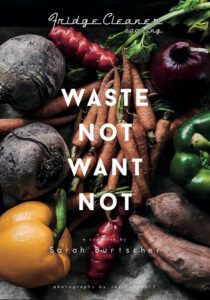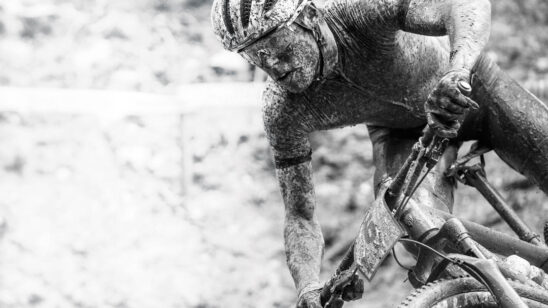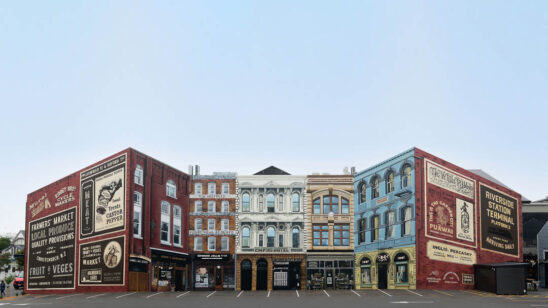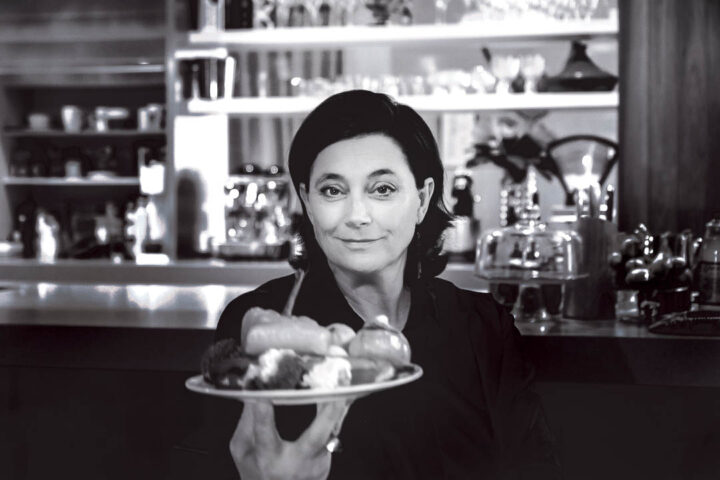
Waste not, want not
Canterbury cook Sarah Burtscher is on a mission to tastefully reduce food waste. Every year, more than 150,000 tonnes of food is thrown away by Kiwis, but her new cookbook provides ample inspiration to turn that stat around – and create delicious, nutritious food for the whole family in the process.
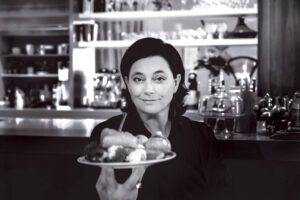
When an eight-year-old tells you your soup made from leftovers is, “so good you need to do a cookbook” – you know you’re onto something. And so, Christchurch cook Sarah Burtscher’s book, Fridge Cleaner Cooking: Waste Not Want Not, was born.
“I don’t think he realises how healthy it is,” laughs Sarah.
Growing up on a high-country station near Tekapo, Sarah absorbed her mother’s approach to food which ensured nothing was wasted.
“She was of that generation where nothing was wasted, but also being quite remote we just had to make do.”
This philosophy has underpinned Sarah’s lifelong career in the food industry.
Starting as a waitress at the legendary Dux de Lux as a 15-year-old, she has worked in cafés and restaurants ever since.
“I am very much a home cook,” she says. “I’m not professionally trained but I love cooking and have been in the industry since I was at school.”
Upon returning from her OE, Sarah bought a café on Victoria Street and later headed up and sold two establishments in Tekapo, too.
“I love what food represents, it gets people around a table talking and sharing – sharing food, sharing conversations – and it’s a way to express how you care about people.
“I love entertaining. Some people can play music or express themselves in other ways, but I do it by putting food on the table and seeing people enjoy it.”
Now living in Christchurch with husband Michael, and children Louis, 15, Phoebe, 12, and Nick, 11, she has spent the last year working on the book which chronicles her food journey – including recipes created over lockdown.
“With each recipe in the book there is a personal connection, it reminds me of a family celebration or friends’ get together, its parts of your life in a book, really.”
Those recipes chosen for the book include popular items from her cafés, but the main thread tying it all together is sustainability.
Kiwis throw away 157,389 tonnes of food each year, according to international organisation Love Food Hate Waste.
That equates to about $1.17billion in perfectly edible food being left to rot, which is not only fiscally wasteful – but produces more than 400,000 tonnes of harmful carbon emissions.
Sarah says people are not intentionally throwing away food (and their money), but she hopes to share the art of cooking with leftovers.
“I’m hoping people will connect with the sustainability angle,” says Sarah. “I hope it helps people learn how to not waste food and be greener with fridge cleaner.”
The recipes in her book are based on the top ten wasted food items in New Zealand (bread, leftovers, oranges and mandarins, apples, bananas, potatoes, poultry, rice, lettuce and beef).
And also contains tips for reusing offcuts and scraps. For example, banana peels soaked in water can double as plant feed, aging potatoes can be cut up to bulk up a soup, the remains of jam in a jar can be thrown into a smoothie and cheese scraps can go onto a pizza.
Standout recipes include the original endorsed-by-an-eight-year-old fridge cleaner soup, Grain It Up; a Basque Burnt Cheesecake “so delicious you don’t want it in the fridge for long because you will keep going back for it”; the easy to make Fast Ice Cream; and a kid approved blue cheese, spinach and pear calzone.
Publishing a cookbook is a feat in itself, but the fact Sarah is dyslexic adds another dimension to the achievement. The book is dedicated to like-minded people.
“I’ve always shied away from writing anything down for the fear of writing it wrong or misreading it.
“So I am really proud that I [have written a book], and that’s why I dedicated it to all dyslexics, because if I can write a book, anyone can.”
